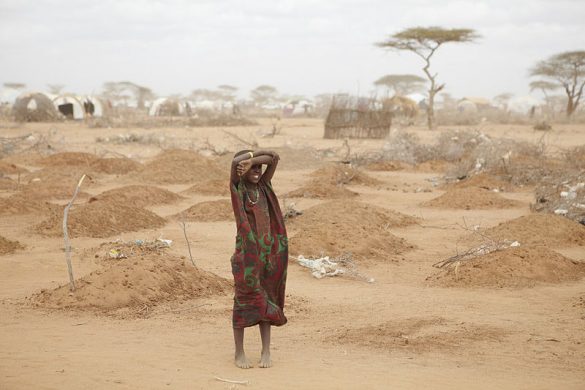Four new actions worth €66.5 million will be funded under the EU Emergency Trust Fund for Africa to address the destructive impacts of the El Niño phenomenon in the Horn of Africa region, such as floods and droughts.
El Niño is the phenomenon of rising temperatures of surface sea water, which causes different extreme events such as floods and droughts.
This package of development assistance focuses on the four countries that are most severely hit by El Niño and that are experiencing the highest levels of food insecurity: Ethiopia (€22.5 million), Somalia (€8 million), South Sudan (€28 million) and Sudan (€8 million). It focusses on short and long-term solutions for vulnerable groups and combines measures for relief, rehabilitation and development.
Neven Mimica, Commissioner responsible for International Cooperation and Development, said:
"When people are at risk of starvation, we have to mobilize our means – and have to do it fast. With these four actions we are providing an immediate response in the Horn of Africa. This clearly demonstrates the value of the EU Emergency Trust Fund for Africa as a highly swift and responsive tool in critical situations."
Climate-change related occurences
Droughts and other climate change-related occurrences are a major driver of displacement in the region. They have the potential of increasing food insecurity and as a consequence fuelling tensions and local conflicts over scarce resources and livelihood opportunities.
To maximise the impact of EU action and to support a broader development response in the region, this package will be channelled through the EU Emergency Trust Fund for Africa.
The Trust Fund, which aims at tackling instability and addressing the root causes of irregular migration and forced displacement, is already delivering actions worth €370 million in the Horn of Africa region.
The four resilience-oriented projects will contribute to:
– Peace-building and economic development;
– Empowering vulnerable groups to meet food and nutrition needs by created linkages with markets;
– Developing more efficient water management systems and resilient agricultural practices;
– Creating income generating opportunities to help poor households become self-sufficient and therefore enhance community livelihoods;
– Strengthening capacity of local institutions for service delivery, thereby supporting vulnerable communities;
– Support social networks in resolving community conflicts in a peaceful manner.
Background:
These actions are part of the EU global response to the El Niño phenomenon, worth almost €550 million (of which €258.5 are allocated to countries in East Africa).
They will also build upon, and complement, two previous packages of actions worth a total of €370 million for the Horn of Africa region, with€253 million and €117 million adopted in December 2015 and April 2016 respectively, as an ongoing response to the commitments made by the EU and African partners at the Valletta summit on migration in November 2015.















